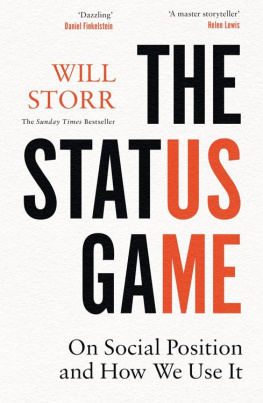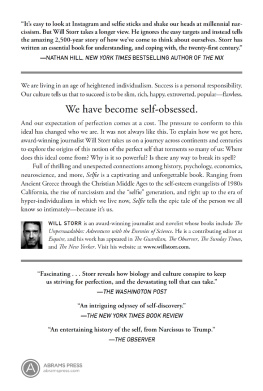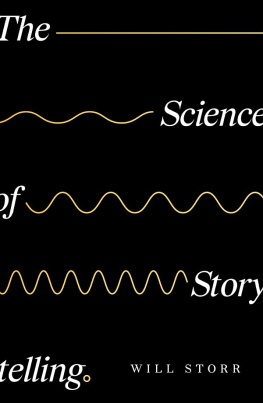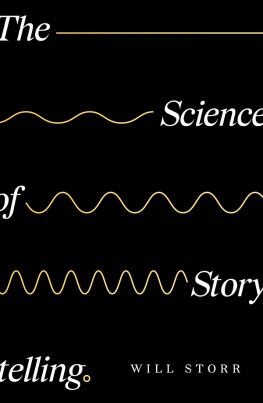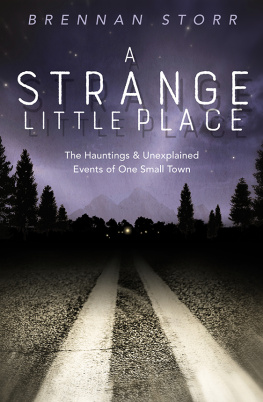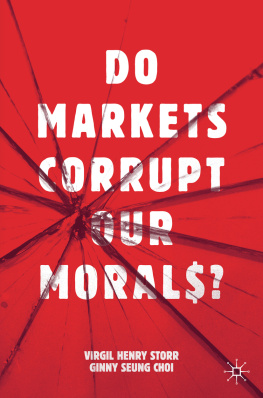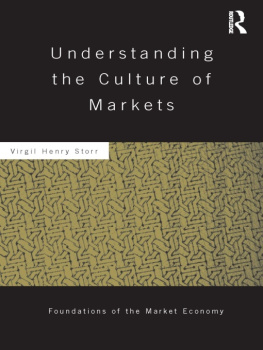Will Storr - The Status Game: On Social Position and How We Use It
Here you can read online Will Storr - The Status Game: On Social Position and How We Use It full text of the book (entire story) in english for free. Download pdf and epub, get meaning, cover and reviews about this ebook. year: 2021, publisher: William Collins, genre: Romance novel. Description of the work, (preface) as well as reviews are available. Best literature library LitArk.com created for fans of good reading and offers a wide selection of genres:
Romance novel
Science fiction
Adventure
Detective
Science
History
Home and family
Prose
Art
Politics
Computer
Non-fiction
Religion
Business
Children
Humor
Choose a favorite category and find really read worthwhile books. Enjoy immersion in the world of imagination, feel the emotions of the characters or learn something new for yourself, make an fascinating discovery.
- Book:The Status Game: On Social Position and How We Use It
- Author:
- Publisher:William Collins
- Genre:
- Year:2021
- Rating:4 / 5
- Favourites:Add to favourites
- Your mark:
- 80
- 1
- 2
- 3
- 4
- 5
The Status Game: On Social Position and How We Use It: summary, description and annotation
We offer to read an annotation, description, summary or preface (depends on what the author of the book "The Status Game: On Social Position and How We Use It" wrote himself). If you haven't found the necessary information about the book — write in the comments, we will try to find it.
The Status Game: On Social Position and How We Use It — read online for free the complete book (whole text) full work
Below is the text of the book, divided by pages. System saving the place of the last page read, allows you to conveniently read the book "The Status Game: On Social Position and How We Use It" online for free, without having to search again every time where you left off. Put a bookmark, and you can go to the page where you finished reading at any time.
Font size:
Interval:
Bookmark:
THE STATUS GAME
Will Storr

William Collins
An imprint of HarperCollins Publishers
1 London Bridge Street
London SE1 9GF
WilliamCollinsBooks.com
HarperCollins Publishers
1st Floor, Watermarque Building, Ringsend Road
Dublin 4, Ireland
This eBook first published in Great Britain by William Collins in 2021
Copyright Will Storr 2021
Will Storr asserts the moral right to be identified as the author of this work
Cover design by Steve Leard
A catalogue record for this book is available from the British Library
All rights reserved under International and Pan-American Copyright Conventions. By payment of the required fees, you have been granted the non-exclusive, non-transferable right to access and read the text of this e-book on-screen. No part of this text may be reproduced, transmitted, down-loaded, decompiled, reverse engineered, or stored in or introduced into any information storage and retrieval system, in any form or by any means, whether electronic or mechanical, now known or hereinafter invented, without the express written permission of HarperCollins
Source ISBN: 9780008354633
Ebook Edition August 2021 ISBN: 9780008354657
Version: 2021-08-25
For Jones, my lovely boy
O Athens, can you possibly believe what dangers I undergo to win good repute among you?Alexander the Great
(356323 BC)
CONTENTS
L IFE IS A game.
Theres no way to understand the human world without first understanding this. Everyone alive is playing a game whose hidden rules are built into us and that silently directs our thoughts, beliefs and actions. This game is inside us. It is us. We cant help but play.
Life takes this strange form because of how weve evolved. Like all living organisms, humans are driven to survive and reproduce. As a tribal species, our personal survival has always depended on our being accepted into a supportive community. Weve developed powerful emotions that compel us to connect with others: the joy of acceptance and agony of rejection. But once inside any group, were rarely content to flop about on its lower rungs. Were driven to rise within it. When we succeed, and receive approval and acclaim from our community, we experience happiness. We feel as if our lives have meaning and purpose and that were thriving. These emotions, too, are no accident. In the millions of years in which our brains were being designed by evolution, the greater our status relative to the people around us, the better able wed be to maximise our potential for survival and reproduction. Back in the Stone Age, increased status meant access to better mates, more food and greater safety for ourselves and our offspring. It still does today. So were driven to seek connection and rank: to be accepted into groups and win status within them. This is the game of human life.
No matter where you might travel, from the premodern societies of Papua New Guinea to the skyscraper forests of Tokyo and Manhattan, youll find it: humans forming groups and playing for status. In the developed world, we play political games; religious games; corporate games; sports games; cult games; legal games; fashion games; hobby games; computer games; charity games; social media games; racial, gender and nationalist games. The variety feels infinite. Within these groups, we strive for individual status acclaim from our co-players. But our groups also compete with rival groups in status contests: political coalition battles political coalition; corporation battles corporation; football team battles football team. When our games win status, we do too. When they lose, so do we. These games form our identity. We become the games we play.
This inbuilt need to achieve and maintain status gives us a thirst for rank and a fear of its loss that deforms our thinking and denies us the possibility of reliable happiness. Its why, even as we raise ourselves so high above the other animals we appear to them as gods, we still behave like them and worse. Always on alert for slights and praise, we can be petty, hateful, aggressive, grandiose and delusional. We play for status, if only subtly, with every social interaction, every contribution we make to work, love or family life and every internet post. We play with how we dress, how we speak and what we believe. We play with our lives with the story we tell of our past and our dreams and plans for the future. Our waking existence is accompanied by its racing commentary of emotions: we can feel horrors when we slip, even by a fraction, and taste ecstasy when we soar. Up and down and up and down and up and down we go, moment by moment, day by day, from childhood to the grave. Life is not a journey towards a perfect destination. Its a game that never ends. And its the very worst of us.
But its also the best. We humans wouldnt have raised ourselves above the other animals in the first place if it wasnt for the peculiar and particular ways we play at life. There are various strategies by which we can earn status. Humans strive: to be the best hunter, the best builder, the best cook, the best technologist, the best leader, the best creator of wealth. The game compels us to scheme and to innovate; to push ourselves to new limits in order to win. When we succeed, dozens, hundreds or even millions of others might benefit from our play. Humans strive, too, to be virtuous: to win urgent moral battles, to rescue the imperilled, to lift strangers in distant continents out of poverty, to create vaccines thatll defend the lives of people wholl be born long after were gone. All such endeavours are accompanied by the games racing commentary of emotions: the shame and the pride, the plummet and the high.
Of course, life isnt only driven by status. Were also motivated by other grand drives. We want power. We want sex. We want wealth. We want to change society for the better. But all these wants are best satisfied by playing the status game. If you want to rule the world, save the world, buy the world or fuck the world, the best thing to pursue is status. Its the golden key that unlocks our dreams. And your subconscious mind knows this. , we naturally pursue status with ferocity: we all relentlessly, if unconsciously, try to raise our own standing by impressing peers, and naturally if unconsciously, evaluate others in terms of their standing.
This may sound like a depressing vision of humanity. In places, it is. But I believe it can also illuminate and inspire. Its astonishing that our species has evolved a system for rewarding ourselves and each other when were virtuous. The result is courage and altruism. Likewise, our instinct for rewarding competence leads to innovation and civilisation. The qualities we value most in humanity are nudged into existence by the status game.
But of no less importance are this investigations warnings. By digging beneath the flattering stories we like to tell of ourselves and revealing the truth, we can see more clearly how easily we become tempted into delusion and tyranny. By understanding what human life is actually doing when it goes wrong, we can be smarter about avoiding its traps. Likewise, by understanding what were doing when it goes right, we can make a better future, increasing fairness, wealth and quality of life for all.
Such an understanding is critical. This book has been written in a time of rage and fear in the Western world. It didnt seem long ago that our central complaint about the political parties of left and right was that they were too similar. What was the point in voting, we asked, when all you got were slightly different versions of neoliberal capitalism? We dont ask this anymore. The first decade of the twenty-first century has seen the Global Financial Crisis, the invention of the smartphone and the rise of social media. The right lurched rightwards, towards Brexit and Trump, fuelled by pro-nationhood agendas; the left lurched leftwards towards identity politics and its new lexicon of insult: gammon, cis, bro, Karen, TERF, mansplainer, manspreader, white, privileged, pale-male-stale. Families argued, friends broke up, wrong-thinking citizens, celebrities and academics were mobbed and toppled, global corporations sprouted political opinions, reading the news came to feel like swimming through nettles. What was happening?
Next pageFont size:
Interval:
Bookmark:
Similar books «The Status Game: On Social Position and How We Use It»
Look at similar books to The Status Game: On Social Position and How We Use It. We have selected literature similar in name and meaning in the hope of providing readers with more options to find new, interesting, not yet read works.
Discussion, reviews of the book The Status Game: On Social Position and How We Use It and just readers' own opinions. Leave your comments, write what you think about the work, its meaning or the main characters. Specify what exactly you liked and what you didn't like, and why you think so.

